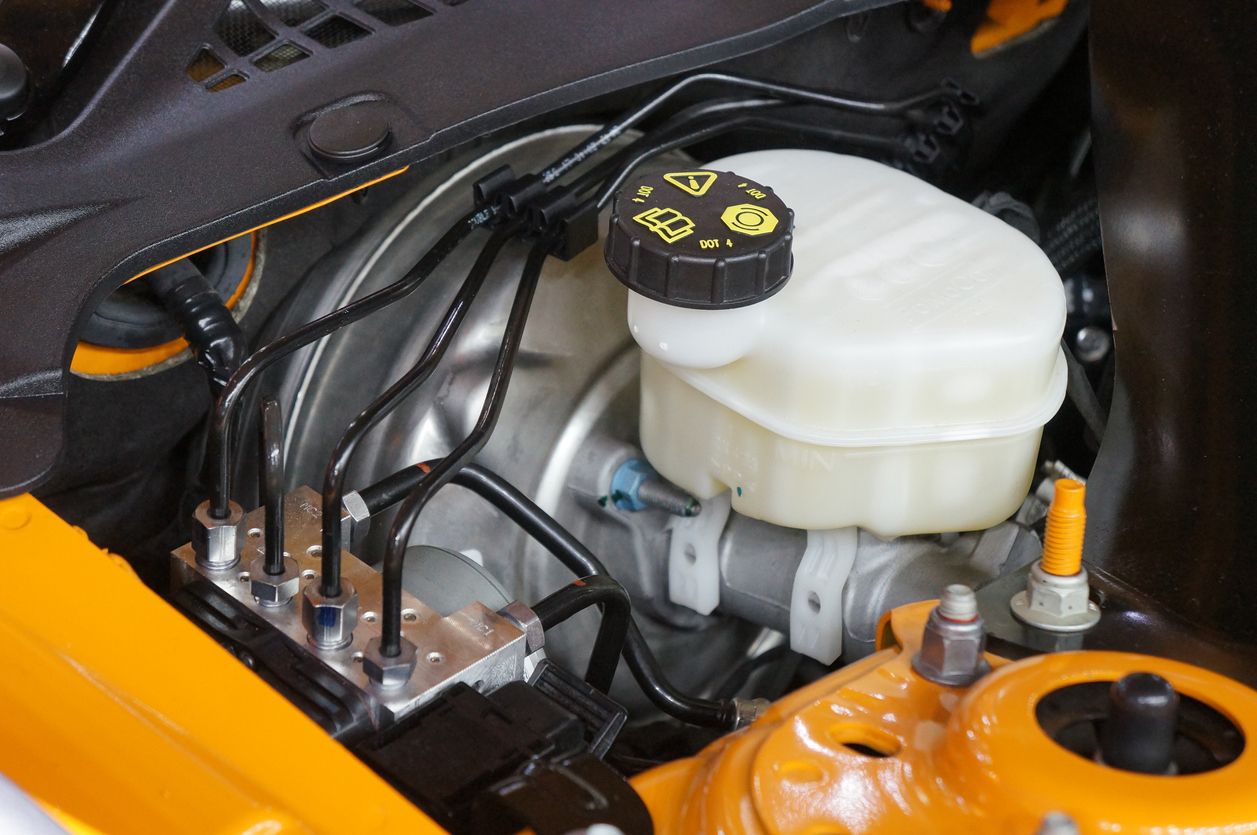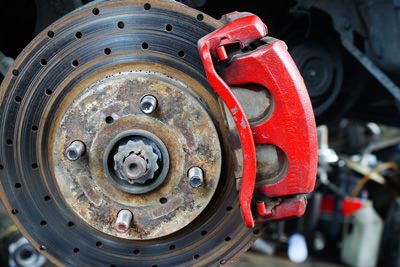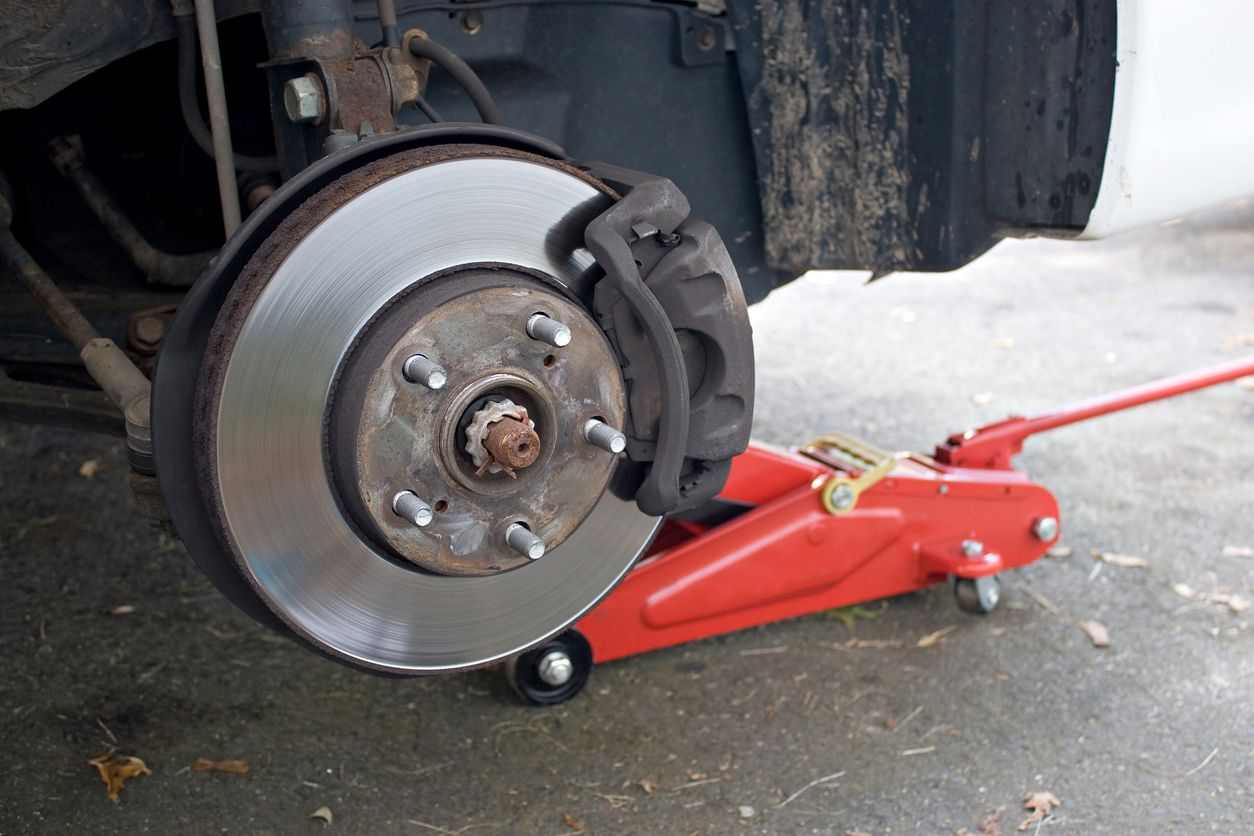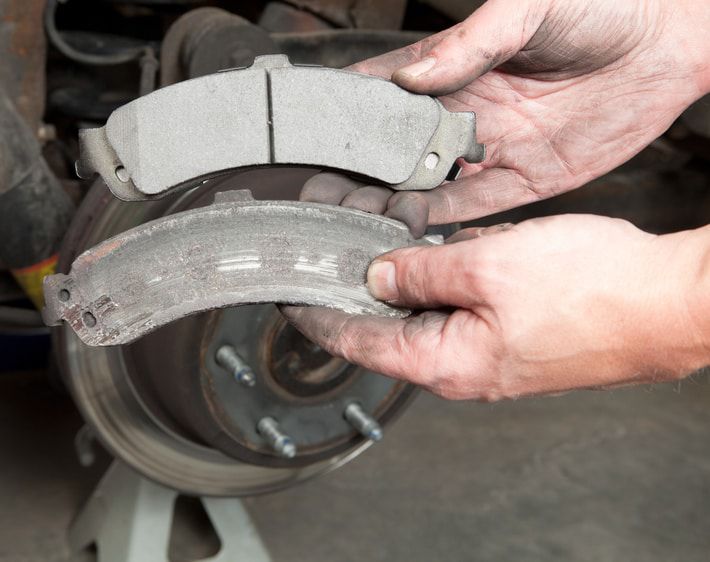Between oil, gas, and coolant, it seems like your car requires endless amounts of liquid to keep running. Brake fluid is another vital fluid you can add to the list. Without it, you may not be able to stop your vehicle! But why do cars need it? Could you drive without brake fluid? What would happen if your car ran out of it? We've got the answers to some of your biggest brake fluid questions here!
How Does Brake Fluid Work?
You know it’s important and that your car needs it, but what does brake fluid actually do? In short, it helps your brakes work. When you hit the brake pedal, the pressurized fluid increases in force and moves through your brake lines to the calipers.
The calipers then push your brake pads against the rotors, which puts pressure and friction on the wheels and causes them to stop. Without adequate brake fluid levels, your vehicle may not be able to complete this process efficiently.
Signs of Low Brake Fluid
When something is wrong with your car, it’s going to ask for help. Low brake fluid levels are no exception. Some signs to watch out for include:
- Illuminated Brake Light on Dashboard: Your dashboard lights come on for a reason, so don’t ignore them! The brake light won’t always mean low fluid, but you should inspect any brake issues right away.
- Problems with the Pedal: If your brake pedal is harder to press than normal, goes down with little to no effort, or touches the floor when you press on it, you could have low fluid levels, contaminated fluid, or air in the system.
- Fluid Around One or More Wheels: Large puddles of fluid around one or more of the wheels may indicate a brake fluid leak.
You don’t want to put yourself or others at risk. If you notice any symptoms of low brake fluid or your brakes just don’t seem to be working as well as they used to, come to Firestone Complete Auto Care for brake service and inspection as soon as possible.
What Causes Low Brake Fluid?
While brake fluid doesn't need to be replaced as often as many other fluids in your vehicle, it can go bad or run low. However, one possible cause of low brake fluid is a leak. Your car is full of different fluids, so avoid jumping to conclusions if you spot puddles beneath your vehicle. Appearance and location can help you better identify if it’s brake fluid.
Brake fluid is most often clear to brown in color and slightly yellow. It also has a slick viscosity similar to vegetable oil. If you have a brake fluid leak, you will likely find a puddle matching this description near one of your vehicle's wheels.
Brake Fluid Low but No Visible Leak?
While a leak is many times the cause of low brake fluid, there are a few other possible culprits:
- Leakage into the brake booster. Sometimes brake fluid can leak internally into the brake booster. When this happens, not only will there be no visible signs of a leak, but your brake booster can become damaged as well.
- Worn brake pads. When your brake pads are worn, more fluid can become stored inside the calipers. This can lead to less brake fluid in the master cylinder.
What Happens When You Drive Without Brake Fluid?
Brake fluid plays a vital role in your braking system, yet it’s often ignored or forgotten. What happens if you run out of brake fluid? You risk your brakes failing completely, which is a huge safety concern. However, it is possible to stop safely when your brakes fail.
When the unexpected occurs and your brakes stop working, you want to warn other drivers by pumping the brake pedal a few times to activate the lights. You can also switch on your hazards.
Then, you want to gradually engage the parking brake to downshift the transmission into lower gears. Once you’ve reached a speed of 20 miles or below, try to safely pull off the road into grass, dirt, or weeds. These surfaces provide more friction to help your car stop completely.
Tip: If your parking brake does not engage, try putting your vehicle into low gear and steer very carefully in a safe direction until the car completely rolls to a stop.
Turn to the Experts at Firestone Complete Auto Care
Your car brakes are not something you want to take a chance on, so don't let brake fluid problems creep up on you. Schedule a free brake inspection at your local Firestone Complete Auto Care to stay ahead of potential brake issues and ensure your brake fluid remains at the proper level.



